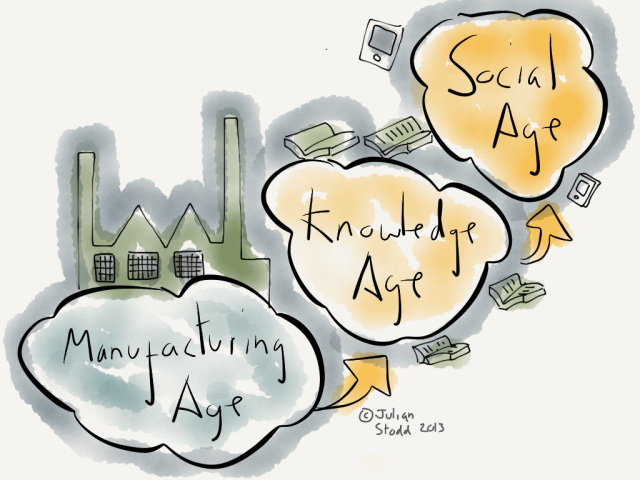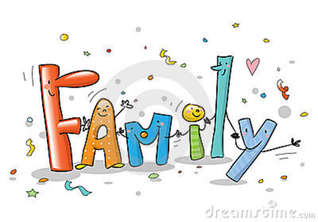One of his blogs elaborates his idea of the social age we now live in.. which he describes in these terms..
I use the term ‘The Social Age’ to talk about the environment we inhabit today: it’s a time when the very nature of work is evolving, changing to reflect a revised social contract and the advancement of technology to facilitate sharing and community. In the Manufacturing Age, we used to make stuff: banging together lumps of iron, burning coal, wrestling value from the very earth itself as we wrought iron and carved railways through the landscape, smelting and creating, until we outsourced it all and specialised production in a global network of trade and exchange, bringing us to the Knowledge Age. We convinced ourselves that this was ok: we no longer made stuff, but we had the knowledge, we did the clever bit ourselves and the knowledge was what really mattered. But then the internet evolved and Google was born, phones got smart and small and our relationship with knowledge changed. Finding stuff out is easy. Making sense of it is what counts. Welcome to the Social Age. Power and authority, that used to be gained through knowledge alone, is now based more in effectiveness, in being able to create value and meaning through the effective use of knowledge and resources in agile ways. Simply knowing stuff is not enough............... The Social Age is about high levels of engagement through informal, socially collaborative technology. It supports agility by allowing many and varied connections and the rapid iteration of ideas in communities that are ‘sense making’.






 RSS Feed
RSS Feed